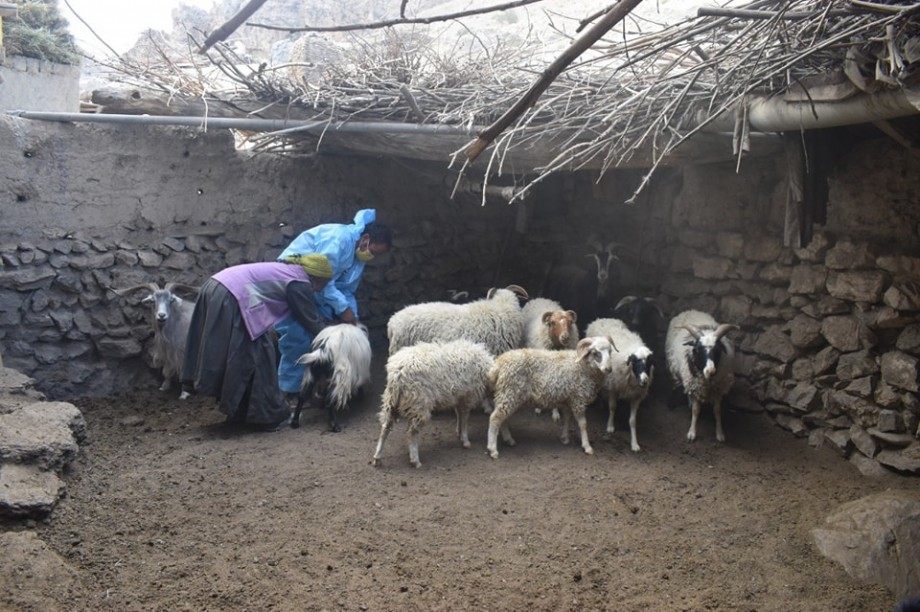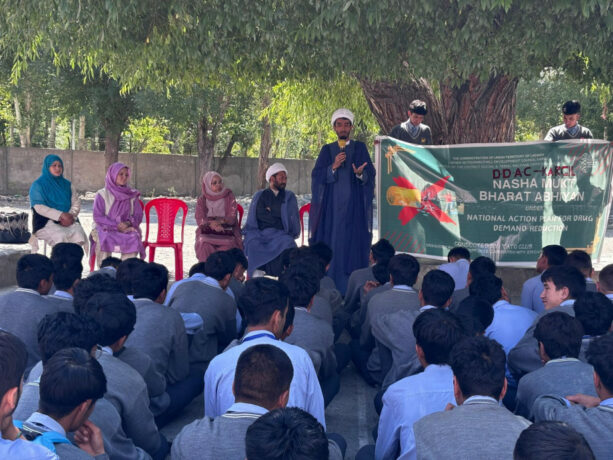
A recent outbreak of Peste des Petits Ruminants (PPR), a highly contagious viral disease that affects small ruminants, occurred in various villages within the Shakar-Chiktan Block. This situation has raised concerns among the local community and livestock owners.
PPR, commonly referred to as goat plague, is caused by the PPR virus, which belongs to the Paramyxoviridae family. It poses a significant threat to goats and sheep, exhibiting symptoms such as fever, nasal and ocular discharge, coughing, pneumonia, mouth ulcers, and diarrhea. PPR is transmitted through direct contact with infected animals, respiratory droplets, and contaminated feed and water sources.
The disease can result in substantial production losses and high mortality rates, underscoring the urgency of its containment for the well-being of the region’s livestock.
Dr. Anwar Ali, the Block Veterinary Officer of Chiktan, reported that the outbreak originated from a summer grazing camp in Shakar village and subsequently spread to neighboring areas.
Recognizing the contagious nature of the disease, a team of experts was promptly assembled and dispatched to control the outbreak, followed by an initial findings report.
The team visited the highland pastures, collecting blood, serum, and nasal swab samples from live animals. These samples were then sent to the Disease Investigating Laboratory in Nowshera, Srinagar, for confirmation. The results of the report confirmed the outbreak of PPR.
Taking swift action, the Director of Animal/Sheep Husbandry & Fisheries procured the PPR vaccine, and a vaccination drive was initiated by the Sheep Husbandry Department Kargil in Shakar-Chiktan Block on September 18.
Approximately 80 percent of the livestock in the block have been vaccinated. Furthermore, public awareness efforts were conducted through print and electronic media. As of today, the disease has been successfully contained, and affected animals are responding well to treatment.


